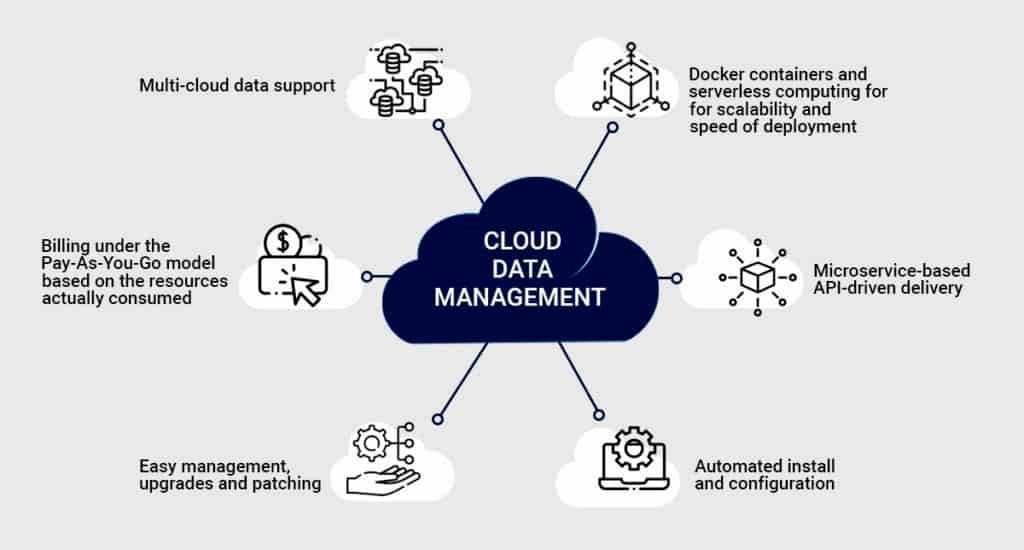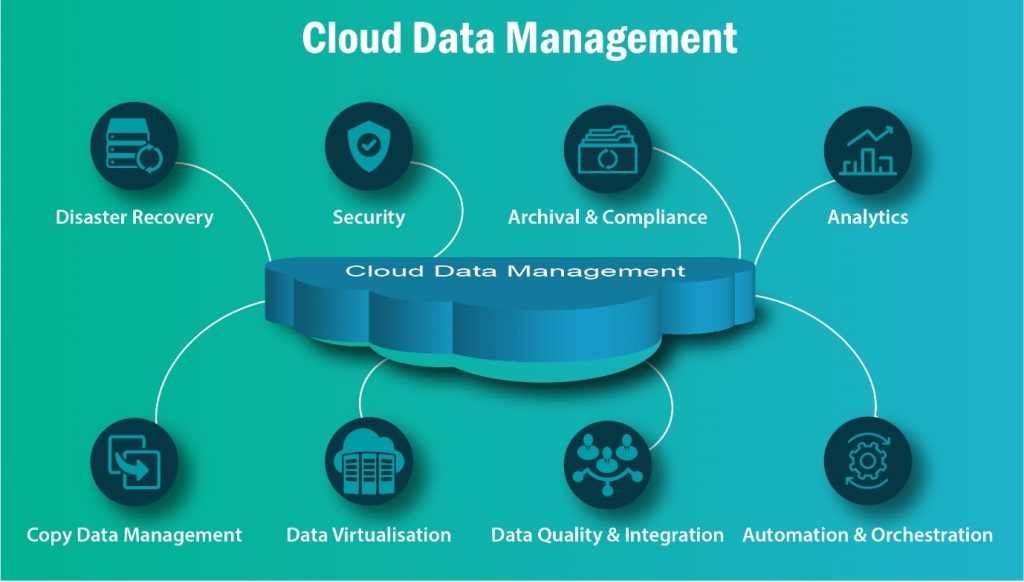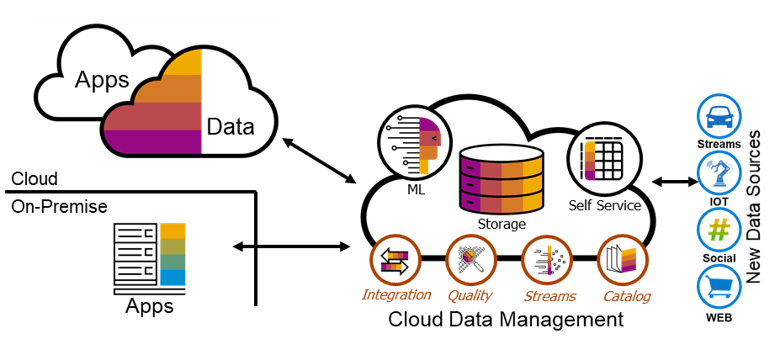Introduction: Why Data Storage Is a CEO-Level Concern
In today’s hyperconnected economy, data is the new currency. Every transaction, customer interaction, and strategic decision relies on the ability to store, manage, and access vast amounts of information securely. For CEOs, the question is no longer whether to digitize data management, but rather how to do it in the most efficient, scalable, and future-proof way.
Traditional on-premise systems often limit growth and flexibility, leaving companies vulnerable to rising costs and outdated infrastructure. In contrast, cloud-based data storage software has emerged as a powerful tool for organizations that want to remain competitive while enhancing operational resilience.
This article explores the core benefits of cloud data storage, demonstrating why it’s not just a technological upgrade but a strategic investment that drives value for businesses and consumers alike.
Scalability That Matches Business Growth

Elastic Storage Capacity
One of the most significant advantages of cloud data storage is scalability. Unlike traditional storage, which requires costly hardware upgrades, cloud solutions allow businesses to expand or reduce capacity instantly. This flexibility ensures that organizations only pay for the storage they use, optimizing both cost efficiency and operational performance.
Meeting Seasonal and Market Demands
For companies in industries with seasonal fluctuations—such as retail, travel, or entertainment—the ability to scale storage dynamically ensures uninterrupted service. During peak seasons, businesses can expand their capacity without costly infrastructure investments, then reduce it once demand stabilizes.
Cost Efficiency and Optimized ROI
Reduced Infrastructure Costs
By moving to cloud storage, businesses eliminate the need to purchase and maintain expensive on-premise hardware. Capital expenditures (CAPEX) are replaced by operational expenditures (OPEX), allowing for predictable monthly costs and better budget allocation.
Efficiency in IT Resource Management
With fewer physical servers to manage, IT teams can redirect their expertise toward innovation and strategic initiatives rather than routine maintenance. This translates into faster growth, improved productivity, and a more agile workforce.
Transparent Pricing Models
Most cloud providers offer usage-based pricing, ensuring CEOs can make clear financial decisions. This transparency empowers leaders to forecast expenditures more accurately and invest in other critical business areas.
Enhanced Security and Compliance

Enterprise-Grade Protection
Cybersecurity is among the top concerns for any CEO. Cloud providers implement advanced encryption, firewalls, intrusion detection systems, and 24/7 monitoring, ensuring that company data remains protected from external threats.
Compliance With Global Standards
For industries bound by strict regulatory frameworks—such as healthcare, finance, and e-commerce—cloud storage providers often adhere to international compliance standards (e.g., GDPR, HIPAA, SOC 2). This reduces the compliance burden on businesses while safeguarding sensitive data.
Backup and Disaster Recovery
Data loss can cripple a business. Cloud storage solutions integrate automated backups and disaster recovery systems, ensuring business continuity even in the event of hardware failures, cyberattacks, or natural disasters.
Accessibility and Collaboration
Global Access, Anytime
Cloud data storage enables employees, partners, and stakeholders to access files from anywhere in the world using secure credentials. This feature is especially crucial for multinational companies with distributed teams.
Empowering Remote and Hybrid Workforces
In the era of hybrid work, cloud solutions enable seamless collaboration across different time zones. Employees can share files, update data in real-time, and collaborate on projects without the restrictions of local storage.
Faster Decision-Making
When CEOs and executives have real-time access to company data, strategic decisions can be made faster and with greater confidence. This agility often translates into stronger market positioning.
Innovation and Competitive Advantage
Leveraging Big Data and Analytics
Cloud storage isn’t just about keeping data safe—it’s also about enabling businesses to analyze massive datasets. By integrating cloud storage with advanced analytics tools, companies can uncover trends, predict consumer behavior, and make data-driven decisions.
H3: Integration With Emerging Technologies
Cloud storage platforms often integrate seamlessly with AI, machine learning, and IoT (Internet of Things) technologies. This gives CEOs the ability to adopt cutting-edge solutions without reconfiguring their infrastructure from scratch.
Accelerating Time-to-Market
Companies that manage their data in the cloud enjoy shorter product development cycles. With better access to insights and improved collaboration tools, they can bring new products and services to market faster than competitors relying on traditional infrastructure.
Sustainability and Corporate Responsibility

Energy Efficiency
Cloud providers often operate eco-friendly data centers that consume significantly less energy compared to traditional in-house systems. For CEOs focused on corporate responsibility, moving to the cloud aligns with sustainability goals.
Reduced Carbon Footprint
By outsourcing storage to optimized facilities, companies can reduce their carbon footprint, an increasingly important factor for both investors and consumers who prioritize environmentally responsible businesses.
Customer-Centric Benefits

Enhanced Customer Experience
A company’s ability to serve its customers depends heavily on the speed and reliability of its systems. Cloud storage ensures faster response times, fewer disruptions, and a smoother user experience.
Personalized Services
By centralizing data in the cloud, companies can analyze customer behavior more effectively, leading to personalized marketing strategies and customized services. This fosters loyalty and strengthens brand reputation.
Trust and Transparency
Consumers value companies that prioritize data security. By leveraging cloud storage, businesses can demonstrate their commitment to protecting customer information, building long-term trust.
The CEO’s Strategic Takeaway
For CEOs, the decision to adopt cloud-based data storage is not just a technological choice—it’s a strategic imperative. The benefits span across scalability, cost efficiency, security, accessibility, and customer satisfaction. Beyond the operational advantages, cloud storage empowers businesses to innovate, remain agile, and strengthen their competitive position in a rapidly evolving market.
By aligning IT infrastructure with business goals, CEOs can ensure that their organizations are not only keeping pace with digital transformation but also leading the way toward sustainable growth and long-term profitability.